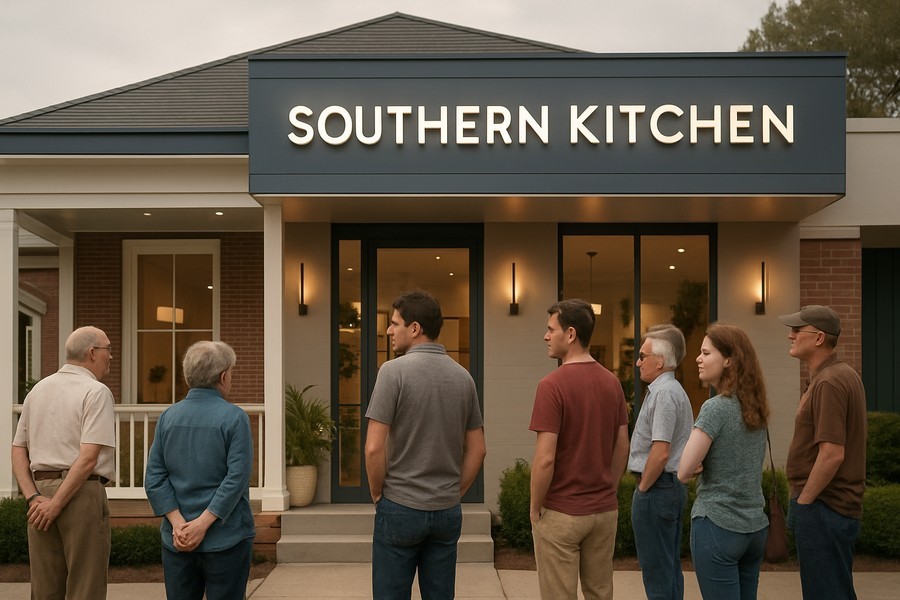
An Unexpected Storm: How a Restaurant's Brand Refresh Ended in Controversy
When a well-known southern restaurant chain decided to revamp its look, it didn't anticipate the stormy reaction it would receive. The 56 years old eatery, famous for its nostalgic charm, introduced a minimalist logo and updated interiors, along with some new food options. However, the change was far from a smooth transition.
The old logo, featuring a friendly character known as "Uncle Herschel" and the words "Old Country Store", was replaced with a streamlined gold background and the restaurant's name. It was the fifth logo switch in the company's history, aiming to draw younger customers and cope with falling sales.
A Political Tornado
What the restaurant probably saw as a simple makeover quickly turned into a political uproar. Online conservative groups lashed out, accusing the company of succumbing to “wokeness”. Their criticisms were sharp and immediate. Some even called for a boycott of the establishment, arguing that it was part of a broader problem of companies appearing to be too 'woke'.
Within a short span, the restaurant's stock fell over 10%. The outburst soon reached the ears of the White House, with a former president suggesting the restaurant revert to its old logo. He even claimed that this move could make the restaurant a "WINNER" again.
A Swift Reversal
Later that day, the restaurant chain announced its decision to backtrack. The new logo was retired, and the iconic 'Old Timer' was reinstated. The company stated that they listened to the feedback and decided to respect their customers' wishes. The former president was also thanked for his input. The restaurant showed appreciation to those who voiced their opinions and announced the return of their traditional logo.
The decision was celebrated as a victory and stock prices bounced back by over 8% within two days. The restaurant also reportedly took down a "Pride page" from its website, which was perceived as another nod to the conservative backlash.
The Power of Public Opinion
For those who had been vocal about their displeasure, this turnaround was seen as a testament to their influence. One commentator referred to it as a significant victory in the "culture war for America". The incident highlighted the sway that public opinion, particularly from conservative quarters, holds over businesses seeking to maintain their profits.
Interestingly, the restaurant has had a history of courting controversy. With its emphasis on a nostalgically idealized vision of "old country" America, the chain has often been linked with conservative values. In contrast, it has faced criticism for recent attempts to widen its appeal and adopt more inclusive policies.
Corporate America's Dilemma
This incident is not isolated. Other companies have also faced backlash over perceived “wokeness”. A beer company saw a dip in sales after partnering with a transgender influencer. A retail giant had to withdraw some Pride merchandise following threats, and a fast-food chain was criticized for its diversity initiatives. Even a car company was lambasted for its marketing strategy.
While companies are increasingly aligning themselves with social values to connect with younger, socially conscious consumers, they also face boycotts from both sides of the political spectrum. The difference today is the amplification that social media provides to these voices, making the loudest ones more heard.
Political Influence and Corporate Behavior
The unexpected controversy surrounding the restaurant chain reflects a broader cultural shift in the country. Today, everything from household decisions to personal choices carries some political value. When influential figures endorse or condemn companies, it can significantly impact their business. As a result, companies often find themselves in a bind: to stick to their rebranding efforts or to backtrack in the face of public opinion.
This incident demonstrates the enormous influence of political movements and their followers on corporate behavior. It also underscores the delicate balance that companies must strike in navigating the current cultural landscape.
